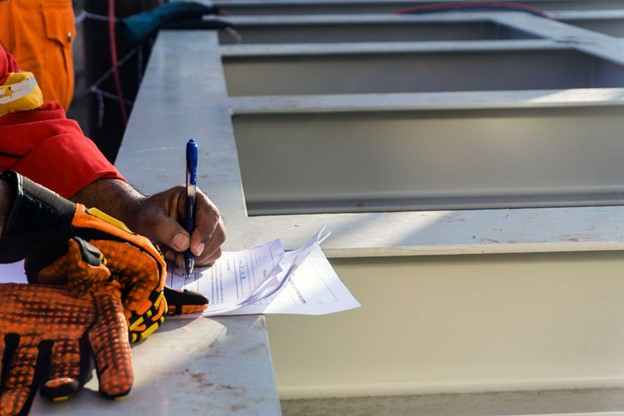Maritime workers commonly develop an occupational illness during the course of their career at sea. While most maritime workers are entitled to basic compensation while they recover, those who qualify as Jones Act seamen may have additional rights under maritime law.
Jones Act Overview
The Jones Act is officially called the Merchant Marine Act of 1920. The Jones Act is federal law and is designed to support a strong fleet of U.S. flagged ships and the talented people who operate them.1 One part of the Jones Act extends the Federal Employers Liability Act (FELA) to seamen in service to these vessels.
While established maritime law traditionally did not allow sailors to sue their employer for negligence or request a trial by jury, Jones Act coverage has provided injured maritime workers with these legal rights.
Who Is Considered a Jones Act Seaman?
While the Jones Act seaman’s rights are well defined in the law, it is less clear regarding what defines a “Seaman” and who does not qualify for Jones Act workers’ compensation. These matters have been established in decisions made by maritime courts since 1920. In general, you will be considered a Jones Act seaman if you:
- Are employed to work in service to a vessel that is in navigable waters
- Your employment directly contributes to the functioning of that vessel
- You spend at least 30% of your working time in service to a vessel or fleet
Common Occupational Illnesses Experienced by Maritime Workers
The Jones Act provides protection for many seamen (and women) who suffer a traumatic injury at sea, but these are not the only ways that this difficult and dangerous work can cause serious health issues or disability. Exposure to toxic substances, asbestos, repetitive stress, and other factors can cause disease or occupational illnesses that have long-term consequences or cause permanent disability for maritime workers.

Some of the occupational diseases that are common to workers in the maritime industry include:
- Toxic exposure. Solvents, heavy metals, and other chemicals used in the industry can cause neurological damage and possible autoimmune conditions.
- Cancer or precancerous conditions. Vessels and drilling platforms may have cancer-causing agents in the air or on surfaces, or exposure can occur from direct contact. Carcinogens cause cancers, and some may develop long after a seaman retires.
- Repetitive stress injuries. These are musculoskeletal injuries that develop from wear and tear on the joints and bones of the body. Common examples are back problems, arthritis, or carpal tunnel syndrome.
- Infectious diseases with permanent injury. Contaminated food, water, or environmental exposure can cause infectious diseases onboard a vessel. Some of these can be life-threatening or cause long-term complications. Shipboard infections include mold-related fungal diseases, staph infections including MRSA, and bacterial histoplasmosis or pneumonia.
- Damage to body organs. The lungs, liver, kidneys, and heart can all be damaged by working in unsafe conditions or being subject to overexertion, fatigue, or malnourishment while working at sea. This organ damage can result in heart disease, emphysema, cirrhosis, or kidney failure.
Occupational Disease Benefits Under the Jones Act
While injuries sustained in an accident at sea are relatively easy to prove, and even establish a contributing factor of employer negligence, the waters become muddier when it comes to occupational illnesses that may develop slowly over time. However, both the Jones Act and the ancient maritime law of Maintenance and Cure recognize that Jones Act seamen are entitled to compensation not just for injuries, but also for illnesses that develop while in service to a vessel.
If you become ill while working on a vessel or develop a disease that was caused by your employment, you may need to consult an occupational disease attorney who specializes in maritime law to receive full and fair compensation. This might include:
- Maintenance and cure. This ancient law of the sea provides injured workers with a daily payment and coverage for necessary medical care until they can return to work. This basic right does not depend on who was at fault for the illness or injury.
- If negligence played a part in causing your occupational illness, you may receive all of the Jones Act seamen’s rights to lost wages, loss of earning potential, and pain and suffering, as well as many other past or future financial losses you or your family will sustain as a result of your condition.
Jones Act FAQs (Frequently Asked Questions)
What Is a Jones Act Vessel?
A Jones Act Vessel must be owned by an American company or person, operate in navigable waters, be used to transport goods or passengers, and be capable of movement (but not necessarily be self-propelled). Case law has established that this includes:

- Fishing boats and barges
- Ferries and cruise ships
- Cargo ships, tugboats, and dredges
- Offshore drilling platforms
- Floating work platforms
- Docked casino boats
What Jobs Does a Jones Act Seaman Perform?
As long as you meet the basic requirements to be considered a “seaman” on a Jones Act vessel, almost every job position will qualify. Just some of the valuable seamen who are afforded protection under the Jones Act include:
- Cooks, stewards, and deckhands
- Roustabouts, roughnecks, and drillers
- The captain, officers, and maintenance crew
- Fishermen and ferry operators
Temporary workers, passengers, and some subcontractors may not be covered by the Jones Act, so you should consult your attorney to determine your status.
What Is Negligence Under the Jones Act?
General maritime law requires that you be paid maintenance and cure if you become ill while in service of a vessel. It does not matter whether you or your employer is at fault or if the blame is shared. This benefit is no-fault.
In order to receive full compensation under the Jones Act, you and your attorney will need to establish that the ship owner’s negligence contributed to your condition. Ship owners are required to:
- Provide a safe work environment and safety gear.
- Maintain equipment in proper working order.
- Provide crew members with adequate training.
- Hire enough crew members to reasonably operate the vessel.
- Maintain a seaworthy vessel.
There are so many ways that a ship owner might be partly responsible for your injuries or occupational illness that consulting with a maritime attorney is the best way to find out if negligence led to your injury or the worsening of your disease.
Did You Develop an Occupational Disease on a Ship or Drilling Platform?
Due to the complexities of Jones Act workers’ compensation when it comes to long-term occupational diseases or permanent disability due to an illness that developed while you were in service to a vessel, you can benefit from working with a team of experienced Jones Act attorneys. While an occupational disease attorney may know the route on dry land, maritime law is more complex.
Even if you think you might not qualify as a seaman for Jones Act coverage, reach out to our Maintenance and Cure team at Schechter, Shaffer & Harris to explore your legal options before they wash away in the tide. We have been protecting the rights of maritime workers for more than 45 years and have recovered hundreds of millions in fair compensation for seamen just like you.
Source:







